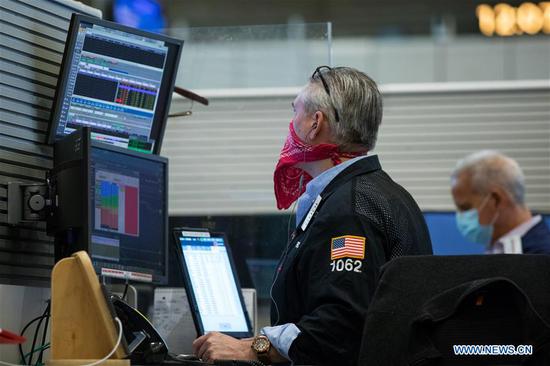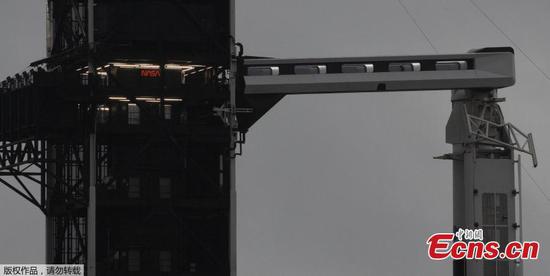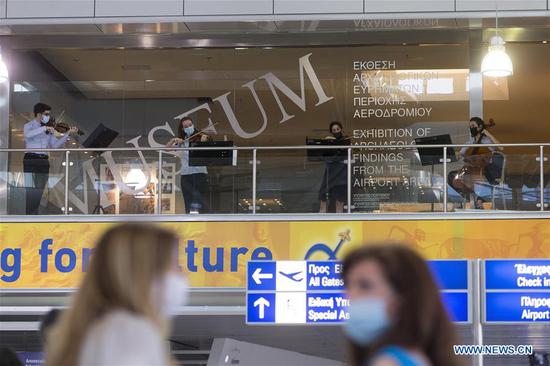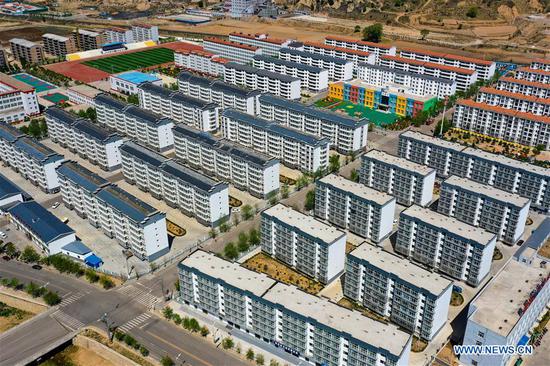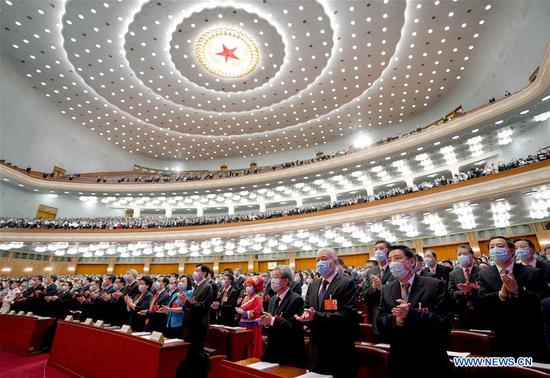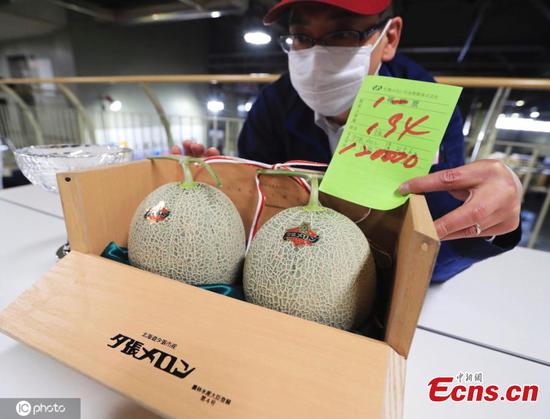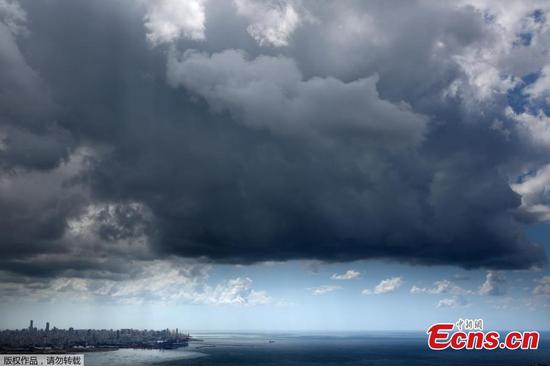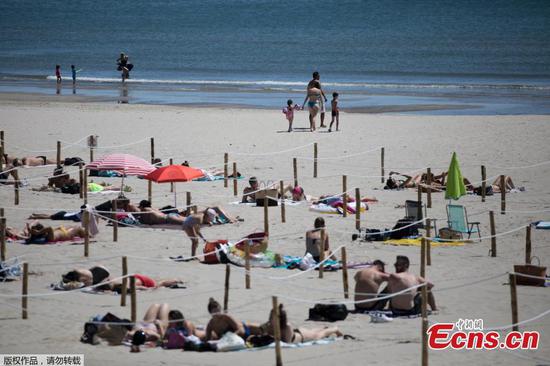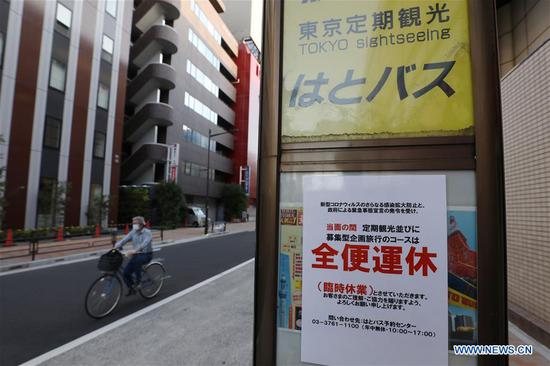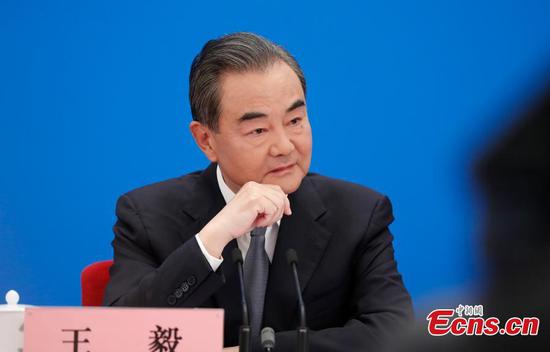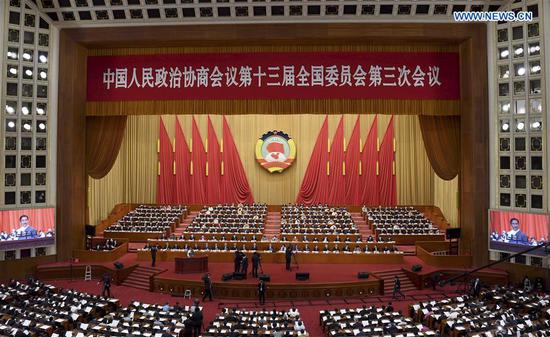
A panoramic view of the financial area in Hong Kong. [Photo/Xinhua]
Introducing national security legislation for Hong Kong is conducive to enhancing the city's capital-market certainty and boosting Hong Kong's status as a global financial hub, Bocom International's chairman said in a statement on Tuesday.
National security legislation will provide Hong Kong with security and safety, which is integral to an international financial hub, according to Tan Yueheng, who is also the honorary president of the Chinese Securities Association of Hong Kong. He stressed that social instability is a major force that affects the market and dents investment confidence.
As a global financial hub backed by the Chinese mainland, Hong Kong has been leveraging its unique advantages under the "one country, two systems" principle, Tan said, adding that the city has a flexible and stable financial system and a resilient capital market.
In the long term, Tan said, the national security legislation will protect Hong Kong's business and investment environment and enhance investors' confidence. Meanwhile, safeguarding national security in the city will solidify Hong Kong's status as a global financial hub and propel the city's capital market development and prosperity, he said.
Tan said in the statement that all world territories, including countries' autonomous regions that have independent sovereignty, are protected by a national security law. Among them, the US has the most complicated and comprehensive national security legislation, Tan added.
Tan said that the profit-pursuing international capital will still attach importance to Hong Kong's capital market.
Over the past two decades, Hong Kong has been connecting the global market with the mainland. The mainland-Hong Kong stock connects allow international and mainland investors to trade securities in each other's markets, and this further promotes two-way opening-up, Tan said.
In addition, as the Hong Kong Stock Exchange continues to explore new growth drivers of Hong Kong's capital market, an increasing number of top mainland enterprises choose to list in Hong Kong, he said.
The market value of four Hong Kong-listed mainland companies — Alibaba, Tencent, MeituanDianping and Xiaomi — accounts for a combined 27 percent of the Hong Kong stock market capitalization, and their turnover accounts for 18 percent of total market turnover, according to Tan.
He said Hong Kong's role as a bridge to connect the mainland and international capital market will not be changed. Amplifying and safeguarding national security in Hong Kong will fundamentally eliminate business and investment uncertainties, as market participants will carry out financial activities under a clear framework, and their safety will be protected, Tan said.















